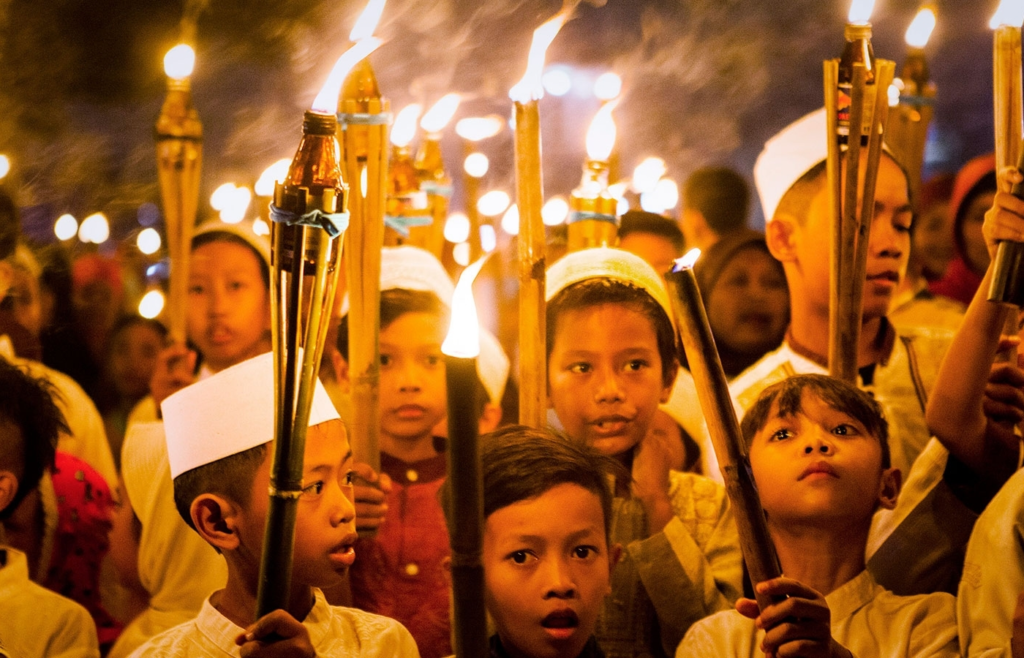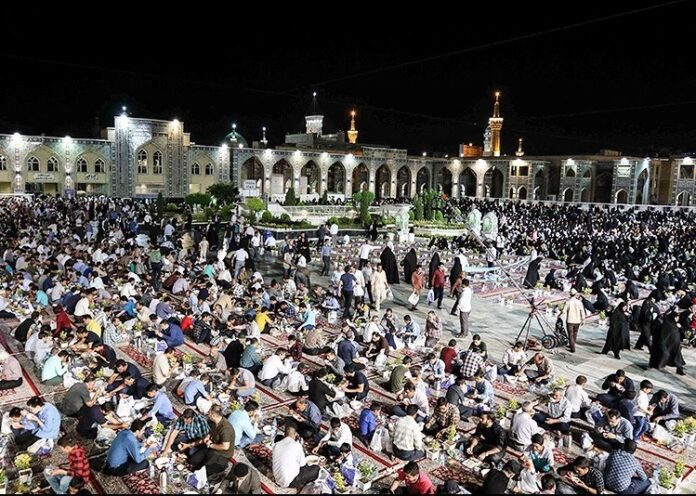Ramadan, the holiest month in Islam, is a time of spiritual reflection, self-discipline, and community. But what exactly shapes the diverse traditions and practices observed during this sacred time? Join us as we embark on a journey to unravel the intricate tapestry of cultural influences that mold Ramadan traditions worldwide!
The Historical Weave: Origins and Spread of Ramadan Traditions

The roots of Ramadan traditions can be traced back to the life of Prophet Muhammad (peace be upon him), who received the first revelation of the Quran during this month. As Islam spread across the Arabian Peninsula and beyond, diverse cultural influences began to shape the way Ramadan was observed. Here’s how history weaves its influence:
- Arabian Heritage: In the heartland of Islam, Arabian customs and traditions have left an indelible mark on Ramadan practices. From the pre-dawn meal of suhoor to the breaking of the fast at iftar, these traditions reflect the cultural fabric of the region.
- Islamic Conquests: As Islam expanded through conquests, it encountered diverse cultures and civilizations. The fusion of local customs with Islamic principles gave rise to unique Ramadan traditions in places like Persia, India, and North Africa.
- Ottoman Legacy: The Ottoman Empire, with its vast territories spanning three continents, left an enduring legacy on Ramadan traditions. From the majestic iftar tents of Istanbul to the grandeur of Ramadan cannons firing to signal the end of the fast, Ottoman influences are still palpable in many Muslim-majority countries.
Regional Threads: Cultural Diversity in Ramadan Traditions

Across the globe, Ramadan is celebrated with a kaleidoscope of cultural practices and traditions. Let’s unravel some of these regional threads:
1. Middle East
- Egyptian Flavors: In Egypt, the month of Ramadan is synonymous with festive street decorations, bustling markets, and mouthwatering delicacies like konafa and qatayef. The spirit of giving is also evident in the tradition of “fawanees,” colorful lanterns that adorn homes and streets.
- Gulf Customs: In the Gulf countries, Ramadan traditions are characterized by a strong sense of hospitality and community. Families gather for lavish iftar feasts, while mosques host special nightly prayers known as Taraweeh.
2. South Asia
- Indian Subcontinent: In India, Pakistan, and Bangladesh, Ramadan is a time of spiritual fervor and culinary delights. Traditional dishes like biryani, samosas, and sheer khurma grace iftar tables, while vibrant bazaars come alive with the spirit of Ramadan.
- Subcontinental Sufism: The mystical tradition of Sufism has left a profound impact on Ramadan practices in South Asia. Sufi saints are revered during this month, and dargahs (Sufi shrines) become centers of spiritual gatherings and devotional music known as qawwali.
3. Southeast Asia
- Indonesian Diversity: In Indonesia, the world’s largest Muslim-majority country, Ramadan traditions reflect the archipelago’s rich cultural tapestry. From the bustling streets of Jakarta to the tranquil villages of Bali, Indonesians come together to observe fasting, prayer, and acts of charity.
- Malaysian Melting Pot: Malaysia’s multicultural society lends a unique flavor to Ramadan traditions. Malays, Chinese, Indians, and indigenous peoples come together to celebrate the month with traditional dishes like rendang, lemang, and ketupat.
Contemporary Influences: Modern Trends in Ramadan Traditions

In today’s interconnected world, Ramadan traditions are evolving in response to changing social, economic, and technological trends. Here are some contemporary influences shaping the way Ramadan is observed:
- Digital Ramadan: With the rise of social media and digital platforms, Ramadan has gone digital! Muslims around the world use apps and websites to find prayer times, share iftar recipes, and connect with virtual communities during the month.
- Globalization and Fusion Cuisine: As people migrate and cultures mix, Ramadan iftars are becoming more diverse than ever. Fusion cuisine blends traditional recipes with global flavors, giving rise to culinary delights like sushi biryani and pizza samosas.
- Interfaith Dialogue: In an increasingly pluralistic world, Ramadan serves as a bridge for interfaith dialogue and understanding. Non-Muslims are invited to iftar dinners, mosques open their doors for community outreach, and initiatives like the “Ramadan Tent Project” promote unity and solidarity.
FAQs: Unraveling Common Questions About Ramadan Traditions
Q1: Are Ramadan traditions the same across all Muslim-majority countries?
A1: No, Ramadan traditions vary widely depending on factors such as geography, culture, and historical influences. Each region has its own unique customs and practices.
Q2: Can non-Muslims participate in Ramadan traditions?
A2: Yes, non-Muslims are often welcome to join in Ramadan traditions such as iftar dinners and community service initiatives. These events promote interfaith dialogue and understanding.
Q3: How do modern trends like globalization affect Ramadan traditions?
A3: Globalization has led to the spread of new culinary trends, digital innovations, and interfaith initiatives, shaping the way Ramadan is observed in contemporary times.
Conclusion: The Ever-Evolving Tapestry of Ramadan Traditions
As we’ve seen, Ramadan traditions are a reflection of the diverse cultural influences that shape Muslim communities worldwide. From the historical legacies of the Arabian Peninsula to the contemporary trends of the digital age, each thread in this rich tapestry adds to the vibrant mosaic of Ramadan observance. So, whether you’re breaking fast in Cairo, Karachi, or Kuala Lumpur, remember that the spirit of Ramadan transcends borders and unites us all in faith, fellowship, and compassion. What Cultural Influences Shape Ramadan Traditions Worldwide? It’s a question with answers as diverse as the Muslim ummah itself!


